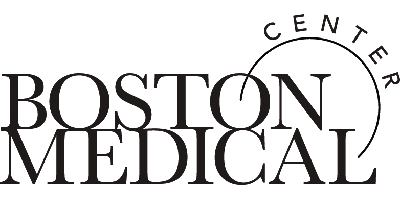|
POSITION SUMMARY: Provides direct supervision for Emergency Department (ED) Social Workers within the Care Management department. Responsible for orienting, scheduling, supervising, and conducting performance appraisals for all ED social work staff. Ensures adequate shift coverage, facilitates daily huddles to assign cases and priorities, and provides clinical guidance and professional development. Assists with the coordination and oversight of departmental projects and programs, including the BNI Program, Critical Incident Debriefing Program, Intern Program, Clothing Bank, Bereavement Program, and Social Work Continuing Education Program. Employs clinical social work techniques and theory to consult, assess, and intervene with high-risk patients and their families, addressing and mitigating emotional and social challenges to support patient-centered care. Position: Supervisor Department: ED Social Work SCHEDULE: 40 Hours (Nights) Monday - Friday 11pm - 7:30am ESSENTIAL RESPONSIBILITIES / DUTIES: Managerial Duties
Assist with onboarding, orientation, and performance evaluations to build a motivated and competent social work team. Oversee daily shift operations, ensuring adequate social work coverage and facilitating daily huddles to assign cases and establish priorities. Supervise staff through training, delegation, mentorship, and performance feedback. Provide clinical guidance and professional development opportunities for team growth. Foster a collaborative and supportive work environment to promote staff well-being and professional advancement. Contribute to departmental projects and programs, including BNI Program, MVPP, Critical Incident Debriefing, Intern Program, Clothing Bank, Bereavement, SW Continuing Education, and quality improvement efforts.
Clinical Duties
Provide oversight and consultation for crisis interventions and complex patient and family needs. Oversee psychosocial assessments, safety planning, bereavement support, and resource referrals. Deliver trauma-informed crisis intervention and respond to high-risk or complex cases, including DCF involvement. Ensure timely documentation and compliance with hospital policies for all patient interactions. Lead during large-scale emergencies (e.g., mass casualty incidents) and provide expert guidance on ethical concerns and patient-centered care.
Direct Patient Care Duties
Conduct psychosocial assessments, identify emotional and social challenges, and formulate care plans. Address abuse/neglect concerns and ensure timely legal compliance and consultations. Provide psychosocial support to patients and families to improve functioning and emotional well-being. Collaborate with the healthcare team to address patients' needs. Ensure all documentation adheres to hospital policies and patient confidentiality.
Administrative and General Duties
Facilitate monthly staff meetings and ensure effective communication on departmental updates and policies. Review and contribute to departmental reports, data analysis, and quality assurance initiatives. Maintain compliance with regulatory and hospital standards, infection control, and safety protocols. Supervise MSW students and support graduate and undergraduate training programs. Represent the department within the hospital and the broader community. Maintain professional competency and licensure through continuing education and training. Identify areas for operational improvement and recommend solutions.
Collaboration & Communication
Represent Social Work at ED meetings and hospital committees, advocating for social work perspectives. Serve as a liaison with interdisciplinary teams to ensure coordinated, holistic patient care. Build positive relationships with internal departments and hospital leadership to streamline processes and share updates.
(The above statements in this job description are intended to depict the general nature and level of work assigned to the employee(s) in this job. The above is not intended to represent an exhaustive list of accountable duties and responsibilities required). JOB REQUIREMENTS EDUCATION:
CERTIFICATES, LICENSES, REGISTRATIONS REQUIRED:
EXPERIENCE:
Minimum of 5 years of post-MSW experience, with at least 2 years in a supervisory role and significant experience in an Emergency Department or other high-acuity, fast-paced healthcare settings. Experience working in a Level 1 Trauma Center strongly preferred. Previous experience with children and families, child protection, and child welfare; Elder Protective Services and Protective Services for Adults with disabilities required. Crisis intervention experience is required, including assessing, de-escalating, and stabilizing crises, while coordinating safety plans and resources to support patients, families, and staff in high-stress situations. Previous experience with vulnerable populations, including persons with disabilities, elders, persons with substance use disorders, homeless/unhoused individuals, new migrants, victims of violence, and those with mental health challenges, is preferred. Requires a level of knowledge of Social Work processes and community resources and agencies in relation to health, illness, and disability, generally acquired through two to three years of on-the-job training.
KNOWLEDGE, SKILLS & ABILITIES (KSA):
Comprehensive understanding of clinical social work principles, ethics, and best practices, particularly in high-acuity settings such as the emergency department. Knowledge of trauma-informed care principles and their application in a healthcare setting. Knowledge of healthcare policies, discharge planning, and social determinants of health, especially as they impact marginalized communities. Knowledge of relevant state and federal regulations affecting social work practice, including privacy laws (e.g., HIPAA) and mandated reporting requirements. Familiarity with the unique needs of urban, underserved populations, including housing instability, food insecurity, and immigration-related challenges. Cultural sensitivity and competence to work effectively with diverse racial and ethnic populations; bicultural and bilingual abilities are a plus. Advanced interpersonal skills to interact effectively with healthcare professionals (e.g., providers, nurses), develop and maintain therapeutic relationships with patients and families, and supervise graduate students. Skilled at managing interpersonal conflicts among staff, patients, and families while promoting a positive work environment. Strong teamwork skills to collaborate within an interdisciplinary team. Strong analytical and decision-making skills to address complex cases and operational challenges effectively. Capacity to pivot and adapt priorities based on fluctuating patient volumes and departmental needs. Competence in tracking team performance metrics, managing workload distribution, and identifying areas for improvement. Ability to manage multiple tasks simultaneously while maintaining a high level of accuracy and attention to detail. Skill in maintaining thorough, timely, and accurate documentation in electronic health record systems. Excellent English communication skills (oral and written), with the ability to summarize and convey moderately complex information clearly. Bilingual or multilingual skills appropriate to the patient population are an asset. Comfort in a fast-paced and dynamic work environment, with a sense of humor valued. Proficiency with standard computer applications such as MS Word, Excel, Outlook, and web browsers.
Equal Opportunity Employer/Disabled/Veterans
|
 Boston Medical Center
Boston Medical Center

 Apr 11, 2025
Apr 11, 2025 
